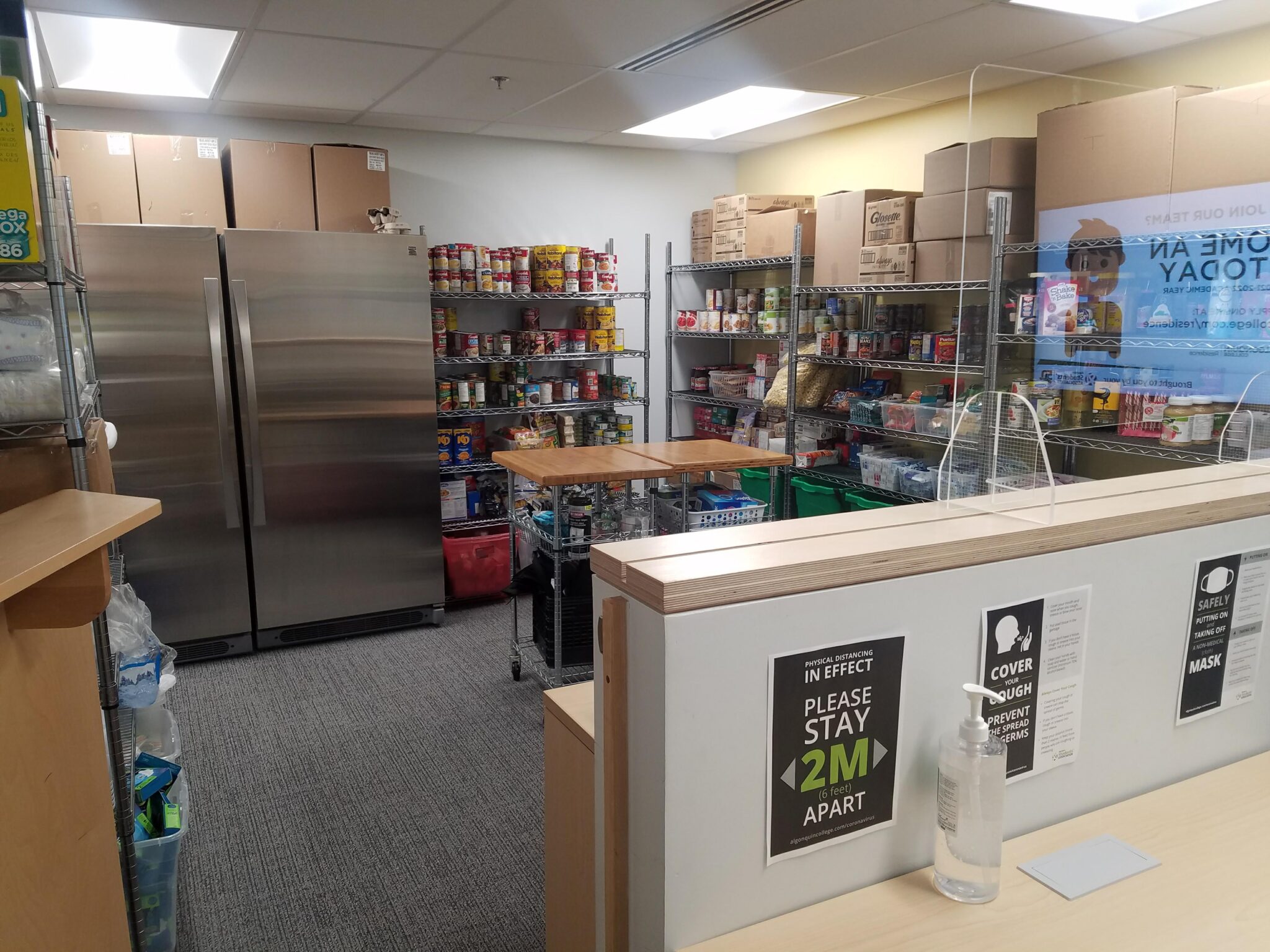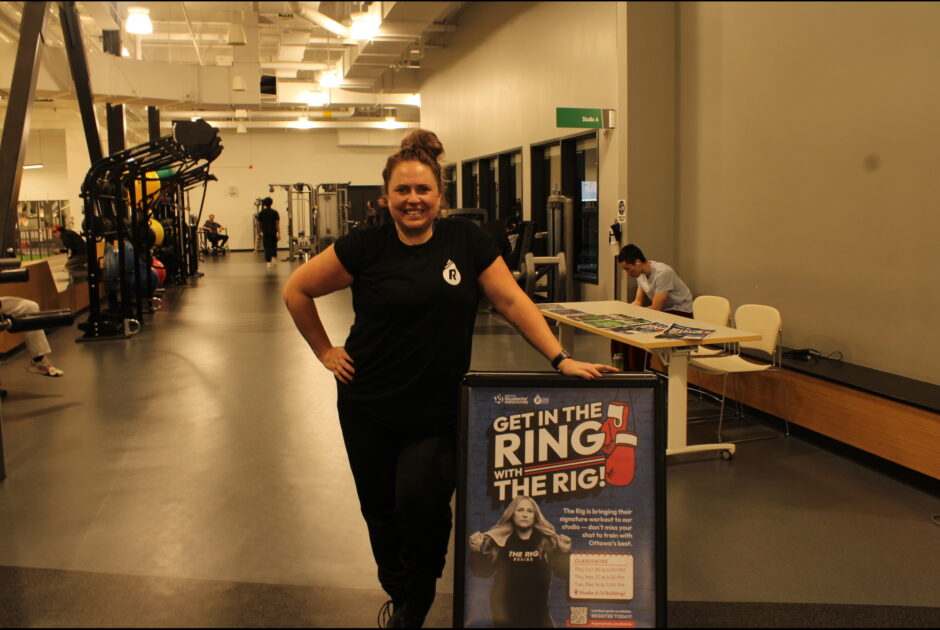Food insecurity during the pandemic puts students’ health at risk

The Algonquin College Food Cupboard saw an 84 per cent increase in the number of students being helped in January 2021 compared to January 2020, according to Jessica McCabe, Students’ Association Food Cupboard coordinator.
Specifically, 105 individuals sought support, up from 57 the previous January.
“In the September 2019 to August 2020 time frame, 620 students were helped compared to 402 students so far from September 2020 to January 2021,” said McCabe in an email interview.
A recent check-in with the Algonquin College Food Cupboard and the Ottawa Food Bank reveals the pandemic has threatened food security in the community, leaving health and academic performance vulnerable.
Food security is “when all people, at all times, have physical and economic access to sufficient, safe and nutritious food to meet their dietary needs and food preferences for an active and healthy life,” according to the UN Food and Agriculture Organization.
“Many students have expressed the difficulties they have been facing since COVID,” said McCabe. “Whether they lost their jobs, or parents who were supporting them lost their jobs and are no longer financially stable enough to help them with food, bills, etcetera.”
Students needing resources beyond what the AC Food Cupboard can provide are referred to the Ottawa Food Bank and other community services.
“I have had more students needing and requesting the extra support,” said McCabe.
The Ottawa Food Bank provides food to 39,000 people per month through its 112 community programs, according to Samantha Ingram, communications manager for the Ottawa Food Bank and an Algonquin College alumnus.
The number of calls for emergency support increased 500 per cent in the first five weeks of COVID-19, said the Ottawa Food Bank 2019-2020 annual report.
“When CERB and other social supports kicked in, the phone lines started to quiet a bit,” said Ingram. “The numbers are still about 100 per cent higher than they were at the same time last year. No doubt it is related to the pandemic.”
The Ontario Association of Food Banks points to post-secondary students and recent university graduates as one of the fastest growing groups using food banks in the province.
“The prevalence of student food insecurity is higher than is experienced by Canadian society at large,” according to research at the University of Manitoba. “Studies consistently find student food insecurity rates range from 30 percent to 40 percent.”
Students living in food-insecure households experience lower grade point averages and difficulties concentrating at school, according to the Canadian study Food Insecurity in Higher Education.
But food banks are a short-term solution.
“All of the root causes of poverty need to be addressed before food banks can close,” said Ingram. “It’s complex and truthfully, I don’t have all the answers.”
She points to government responsibility saying there is a need for more affordable housing, increased social assistance that keeps up with inflation and higher numbers of stable jobs with sick leave as some potential solutions.
On Algonquin’s campuses, McCabe has a suggestion for how the college community can encourage change.
“We can help ensure food security by talking about it,” she said. “Not everyone is aware of the struggles that some students face in their inability to purchase food or having to pay rent over buying groceries for their household.
“There is still a stigma about accessing food banks. The more we talk about it the more “normal” it will be,” she said. “Access to food is a right and should not be a privilege.”
Where to find emergency food:
https://www.algonquinsa.com/services/food-cupboard/
The Food Cupboard is open for food pickups on Mondays and Wednesdays by appointment only.
To donate:
Donate goods to AC Food Cupboard
https://www.algonquinsa.com/services/food-cupboard/
Donate money to AC Food Cupboard










